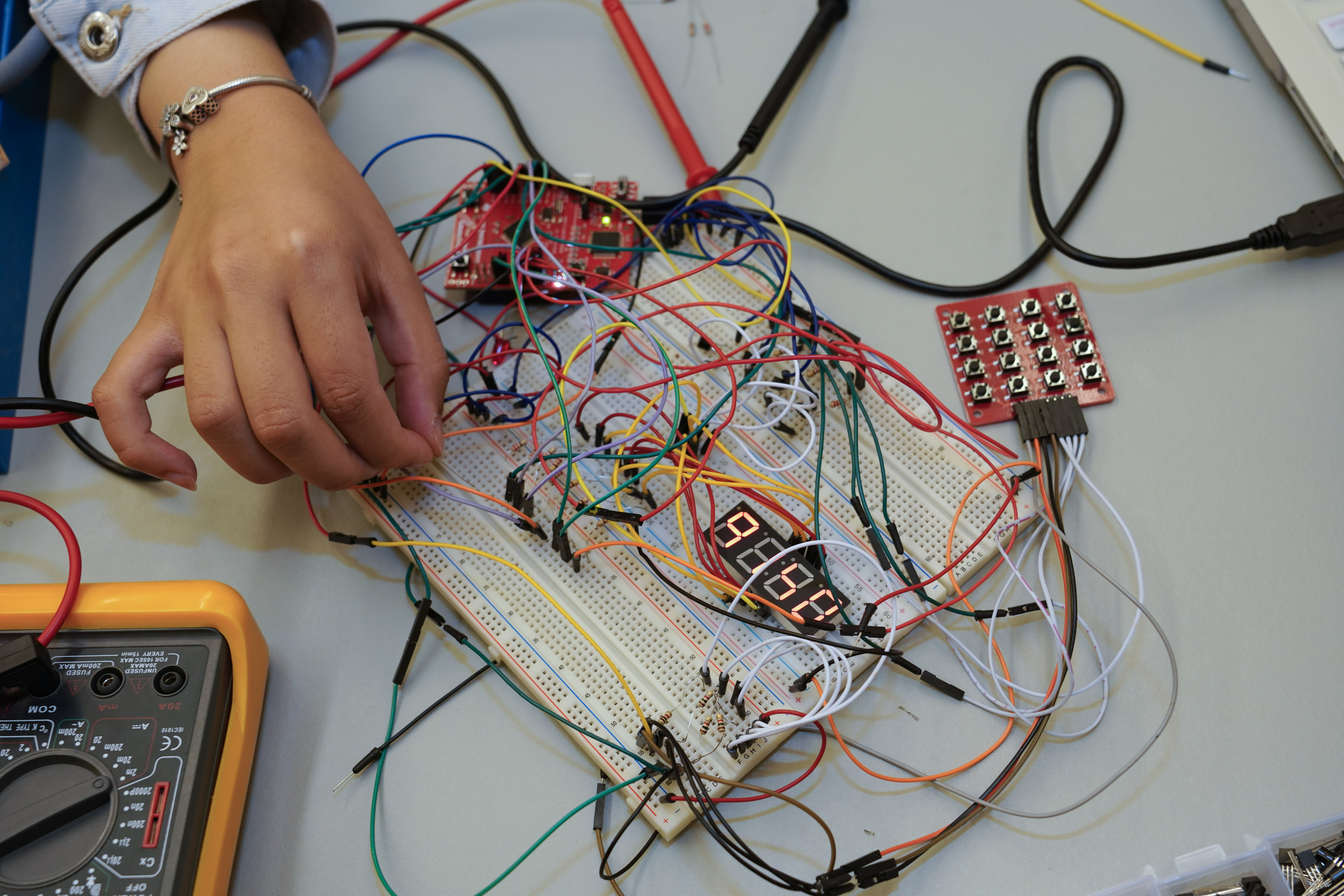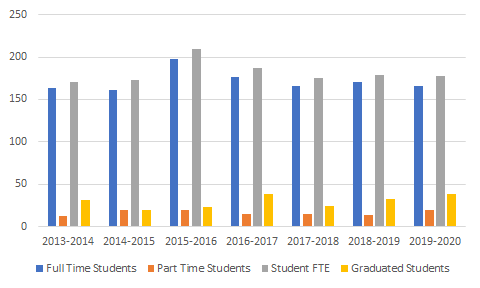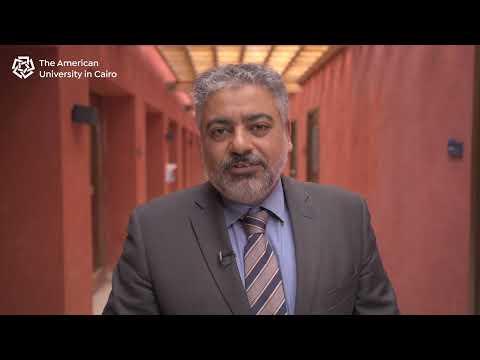Electronics and Communications Engineering - BS
Program Overview
Electronics and communications engineering is among the most vibrant fields of engineering in terms of pushing boundaries, discovering new scientific breakthroughs, creating innovative technologies and making a real impact on the world. AUC’s electronics and communications engineering program covers everything from electromagnetism and circuits to digital design and communications. But what really sets our program apart is that it's the first of its kind in Egypt and is accredited by the highly respected ABET. Inside the University’s state-of-the-art laboratories, you will engage in individual and group projects, guided by world-class faculty members with extensive experience across the industrial and academic sectors. As an AUC graduate, you will have critical thinking, problem-solving and innovation skills that will help you become a leader in this field.
The program is suitable for students interested in dynamic industries, including aerospace, automotive, construction, consumer goods, defense, desalination, electronics, oil and gas, pharmaceuticals, power generation, satellite communication stations, and telecommunications.
The Electronics and Communications Engineering (B.S.) program is accredited by the Engineering Accreditation Commission of ABET, https://www.abet.org, under the commission's General Criteria and the Program Criteria for the Electrical, Computer, Communications, Telecommunication(s) and Similarly Named Engineering Programs.


Degrees and Admission Requirements
Students wishing to pursue a Bachelor of Science in electronics and communications engineering or the electronics minor should meet the minimum academic and admission requirements set by AUC.
Scholarships
Excellence for Everyone
AUC will help you set your path to success from day one.
Students can receive anywhere from 20% to 100% of tuition coverage through scholarships and the Excellence Scholarship Program.
Graduates of AUC's computer engineering program are qualified to fill one or more of the following positions within a few years after their graduation while taking ethical and environmental concerns into account:
- Professional team member in a multidisciplinary environment, local or global
- Distinguished member of the computer engineering field through promotion or professional development
- Successful member of an advanced academic or research organization
- Successful entrepreneur
The program is suitable for students interested in dynamic industries, including aerospace, automotive, construction, consumer goods, defense, desalination, electronics, oil and gas, pharmaceuticals, power generation, satellite communication stations, and telecommunications.
Completing the requirements of the Electronics and Communications Engineering Program at AUC, our students will develop
- An ability to identify, formulate, and solve complex engineering problems by applying principles of engineering, science, and mathematics
- An ability to apply engineering design to produce solutions that meet specified needs with consideration of public health, safety, and welfare, as well as global, cultural, social, environmental, and economic factors
- An ability to communicate effectively with a range of audiences
- An ability to recognize ethical and professional responsibilities in engineering situations and make informed judgments, which must consider the impact of engineering solutions in global, economic, environmental, and societal contexts
- An ability to function effectively on a team whose members together provide leadership, create a collaborative and inclusive environment, establish goals, plan tasks, and meet objectives
- An ability to develop and conduct appropriate experimentation, analyze and interpret data, and use engineering judgment to draw conclusions
- An ability to acquire and apply new knowledge as needed, using appropriate learning strategies
Students are required to participate in an industry internship to get introduced to the job market and form connections with potential employers. Internship opportunities are available with industry partners such as Alcatel, Cisco, Electronics Research Institute, Elsewedy Electric, Etisalat, Halliburton, Intel, Mars, Orange, Siemens, Valeo, and Vodafone, among others. Students also participate in a variety of extracurricular activities, such as field trips and local and international competitions.
Graduates of the program have gone on to work for industry leaders as:
- Communications engineers
- Electronics and communications research engineers
- Electronics circuit design engineers
- Field test engineers
- Network planning engineers
- Service engineers
- Signal processing engineers
- Systems engineers
- Technical directors
Our alumni have worked for top local and multinational employers, including Siemens, IBM, Ericsson, Dell Technologies, Cisco Systems, Alcatel, Valeo, Etisalat, Huawei, Vodafone, Microsoft, Orange, ITWorx, Intel, Halliburton, Booz Allen Hamilton, and P&G. Program alumni have also pursued graduate degrees at top global universities, such as Stanford and Harvard.
Enrollment Trends
| 2013-2014 | 2014-2015 | 2015-2016 | 2016-2017 | 2017-2018 | 2018-2019 | 2019-2020 | |
|---|---|---|---|---|---|---|---|
| Full Time Students | 163 | 161 | 198 | 177 | 166 | 170 | 166 |
| Part Time Students | 12 | 19 | 19 | 15 | 15 | 14 | 19 |
| Student FTE | 170.58 | 172.75 | 209.58 | 186.50 | 175.00 | 178.67 | 177.29 |
| Graduated Students | 31 | 19 | 23 | 39 | 24 | 33 | 38 |



Discover More in Academics
Learn about related programs, minors, accreditation and more.
